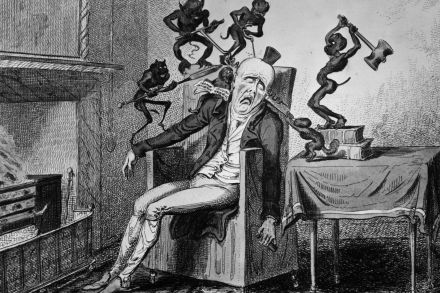Why you might not want corridors in your historical novel
I read C.J. Sansom’s novel Dissolution on the train recently with pleasure. For an historical novel narrated in the 1530s, what was the author to do about language? He eschewed godwottery (which Fowler, in a dated term, called Wardour Street, after the old furniture once sold there). But I did gulp at page 273: ‘I got up, waving my arms and stamping my feet to restore the circulation.’ The what? The word circulatioun is first recorded from 1535 in the sense ‘movement in a circle’. It wasn’t till 1630 that James Primrose published a commentary, De Motu Cordis et Circulatione Sanguinis, on the theories of William Harvey. Elsewhere in his














